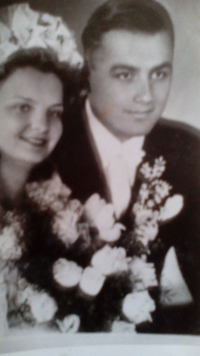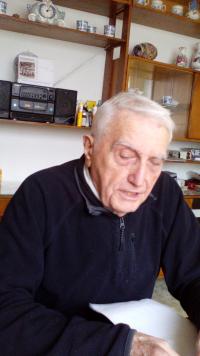I believe in human goodness

Download image
Blažej Ingr was born on January 30, 1928 in Vacenovice. His family farmed on extensive farmland. During the War, the German army came to their village, and they had two German soldiers lived in their house. At the end of the War when the German army left, they were replaced by soldiers from Romania. These soldiers were hungry and were notorious for stealing livestock from people in the village. After 1948, farmers began to be pressed to join the Agricultural Cooperative. The Ingr family did not want to surrender their large farm, but when two of Blažej Ingr’s brothers were arrested as Sons of a Kulak and sent to work in uranium mines, the family eventually joined the Cooperative. Later in his life, Blažej’s daughters suffered persecution as well: they were not allowed to study, managing to get admitted to a university only after the Velvet Revolution. Both of his sons were rehabilitated at the same time as well. Blažej Ingr still lives in Vacenovice and devotes himself to viticulture.


